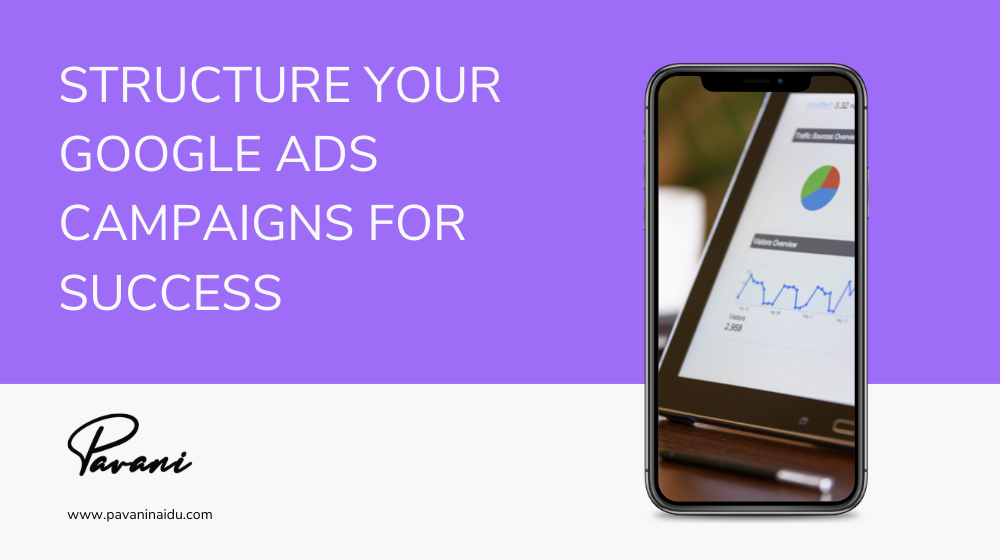Google Ads campaign
Google Ads campaign structure is critical to your chances of success in PPC. Your search network campaigns are intrinsically linked to your marketing strategy and business goals. So, if your account lacks structure, things are unlikely to go your way.
In this article, we’ll walk you through how to structure Search Network campaigns, explore the benefits of multiple ad groups, and set up your account to earn more.
Structure Your Google Ads Campaigns For Success
In Google Ads, a Search Network campaign has the following features:
Campaign Structure
It’s good practice to have multiple campaigns in your Google Ads account. But don’t forget to have a good Google Ads campaign structure. Imagine you own a shoe store – you can have separate campaigns for men’s shoes, women’s shoes, and children’s shoes.
When naming your campaigns, think about the audience and campaign goals. Google Ads Framework lets you give your campaigns clear, logical names that make them easy to identify and understand at a glance.
Ad Group Structure
Keep these parameters in mind when structuring your account:
- Maximum of 7-10 ad groups per campaign
- Maximum of ~20 keywords per ad group
- Only 2-3 ads per ad group
User intent is an important consideration when creating ad groups. Ideally, you should have separate ad groups for keywords with purchase intent and keywords without purchase intent.
Keyword Structure
If we’re being completely honest, Google Ads doesn’t need actual keyword structure. After all, keywords are already built in at the ad group level.
That being said, there’s still a lot to think about when you’re doing major research and selection. When searching for new keywords for your PPC campaign, keep these tips in mind:
- Choose the keywords with high search volume and low competition.
- You can also choose high-competition keywords. These keywords are in high demand and converting, but their CPC can be high.
Ad Structure
A PPC campaign system also demands a proper ad structure. When you’re working on your ad copy for a PPC campaign, your copy should connect to the main objective and provide enough value to readers to get them to click.
Here are some things to think about when setting up your PPC ads:
- Craft your brand message clearly and coherently.
- Add numbers/dots to grab people’s attention. E.g. 50% off, 2-for-1, etc.
- Focus on long tail keywords as they are more specific and closely linked to user intent.
- Use ad extensions to provide additional information that prompts prospects to click on your ads. The main benefit of an ad extension is to grab the customer’s attention.
Landing Page Structure
As you build your search network campaign, the final step is to align your landing page content with your ad. This is important to provide a seamless transition. You need to gather the details of your ad to create a unique value proposition that is difficult to counter in Google’s ad structure.
It’s good to have a detailed knowledge of how to create a good landing page, but at least follow these tips to create a solidly structured landing page:
- Open with a beneficial topic.
- Write clear, relevant, and concise copy.
- Focus on getting the audience to take a specific action.
- Remove distracting navigation links.
- Highlight the form or checkout option.
- Use images and videos wherever necessary.
- Maintain your brand image throughout.
The most important thing is that your ad and landing page are aligned – don’t confuse prospects with landing page content unrelated to your ad.

